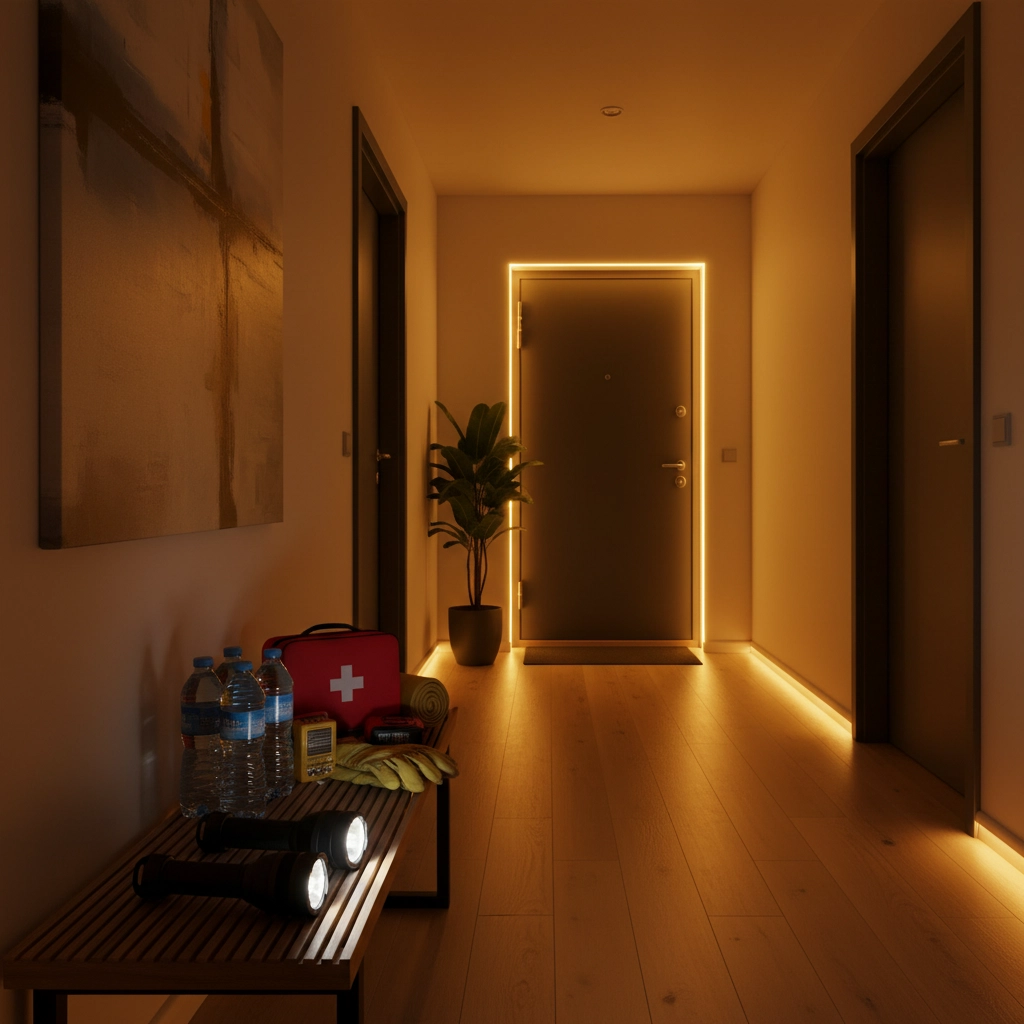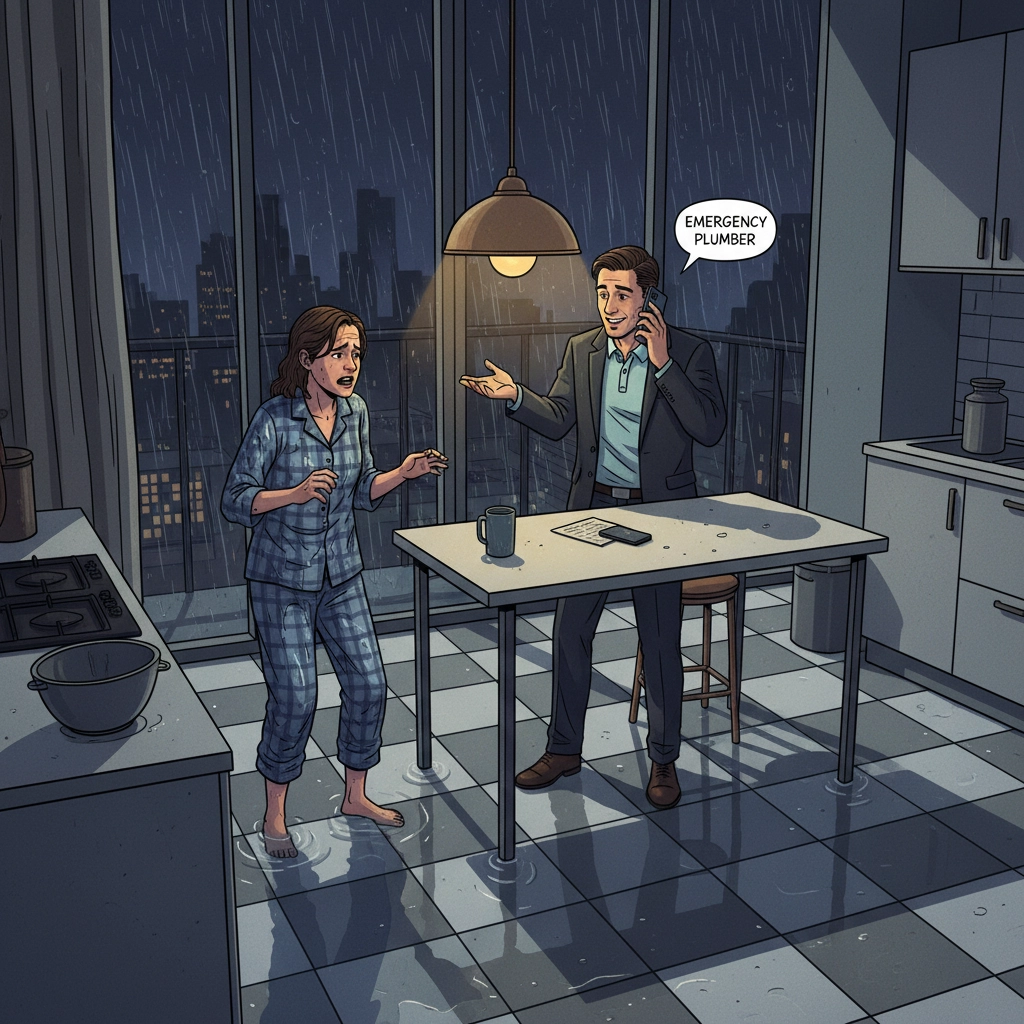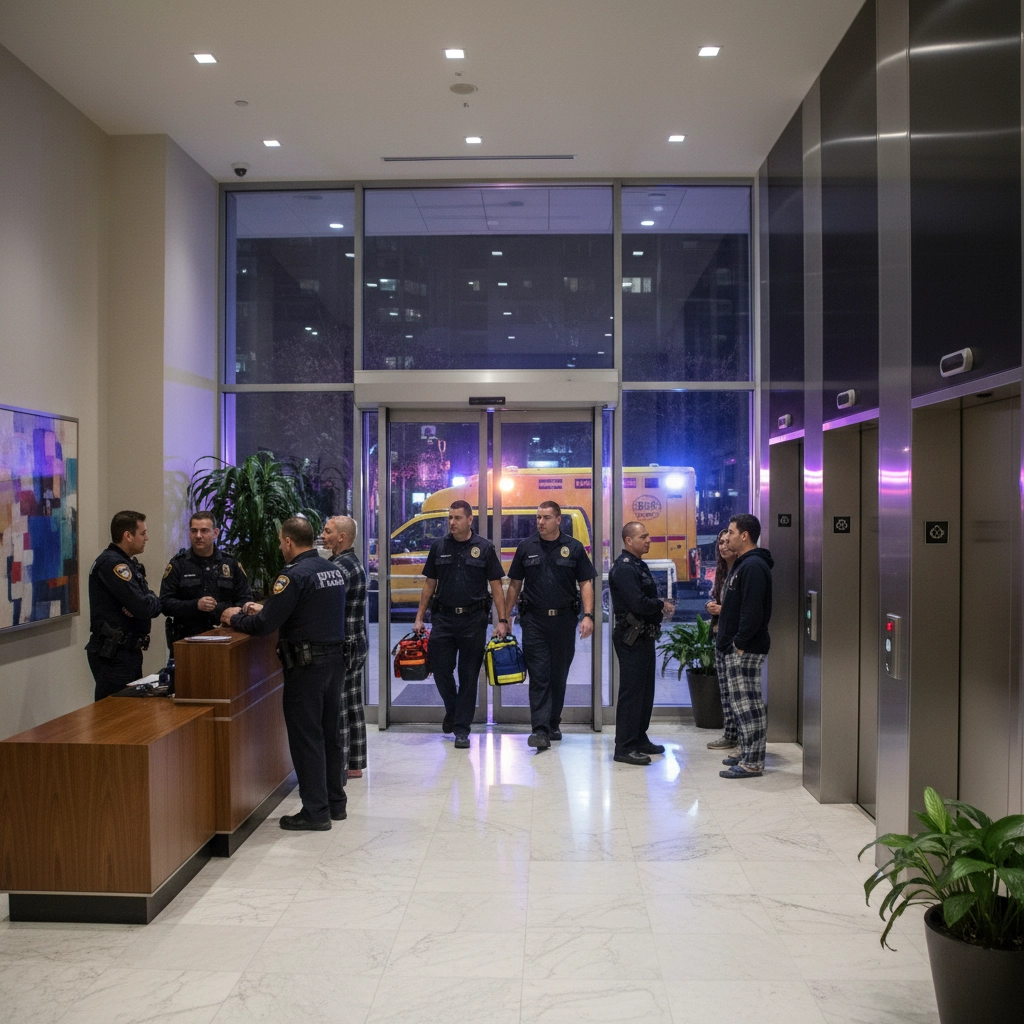How to Handle Tenant Emergencies 24/7: The Ultimate Guide for Stress-Free Property Maintenance
- luke7851
- Sep 25
- 4 min read
Emergencies don’t keep office hours: and property managers shouldn’t either. Being prepared for those 2 a.m. burst pipes or late-night power outages means a much happier tenant base, fewer surprise costs, and a reputation for being on top of your game. Here’s how to steer through the chaos and stay cool under pressure.
24/7 Availability: Why It Matters
Your phone buzzing at 3 a.m.? That’s when great property maintenance counts most. If you’re not available or responsive when emergencies strike, things can go south quickly: both for your property and your relationship with tenants. Immediate action often prevents small issues from spiraling into big (and expensive) problems.
Tips for round-the-clock availability:
Always answer late-night calls; even if you’re unsure it’s an emergency, respond promptly.
Set up an emergency phone line or dedicated service for urgent situations.
Use a call answering service for after-hours support if you’re on vacation or unavailable.
When tenants know you’re in their corner: day or night: they feel safer and more valued.
Laying the Groundwork: Emergency Prep & Planning
It’s much easier to handle emergencies if you’re set up for them. Building an emergency response system starts with a solid plan.
Create a coverage plan: Partner with trusted colleagues, on-call vendors, or professional emergency services. Leave clear instructions about who’s responsible if you’re away.
Educate tenants: Make sure they know the steps to take and who to contact in various emergencies.
Check your own readiness: Do you have the right gear and info ready at hand?
Must-have emergency supplies:
Flashlights and fresh batteries
First aid kits
Emergency contact lists (owners, managers, vendors)
Analog phone or charged cell phone backup
Heavy gloves, leak kit, bottled water, and sensible footwear

The Big Ones: Most Common Tenant Emergencies (& What to Do)
1. Plumbing Disasters (Burst Pipes, Floods)
Water everywhere? Speed is everything.
Shut off water at the source if possible.
Call in emergency plumbers (keep a 24/7 contact on speed dial).
Move tenant belongings away from water; provide fans or wet vacs if safe.
Communicate immediate next steps and timeline for repairs.
2. Power Failures
If the power’s out for everyone, contact your local utility company for updates.
Advise tenants to switch off electronics to avoid a post-outage power surge.
Communicate expected restoration times and share updates as you get them.
If tenants are trapped in elevators, calmly keep in contact and arrange rescue with emergency services.
3. Fire or Smoke Incidents
Instruct tenants to evacuate and call emergency services right away.
Never have tenants try to tackle major fires themselves: leave it to the pros.
Check on affected tenants, arrange alternative accommodation if needed, and start the insurance process promptly.

4. Medical Emergencies
Time is critical.
Call 911 immediately. Give your name, address, type of emergency, and contact info.
Don’t move injured persons unless needed for safety.
Attract paramedics and guide them directly to the location.
5. Security and Criminal Activity
Tenant safety comes first.
Encourage tenants to call police directly if there is any threat (break-in, assault, etc.).
Secure the premises afterward: repair locks, doors, windows as soon as possible.
Building Your Emergency Response Team
No landlord wants to be the lone responder at all hours. Build reliable relationships with:
Emergency plumbers
24/7 electricians
HVAC techs
Restoration crew (water/fire damage)
Locksmiths and security services
Make sure they know your properties, and you know their response times and service scope.
Pro tip: Draft a vendor contact sheet and give it to tenants for peace of mind.
Keeping Everyone in the Loop: Communication Do’s and Don’ts
Do:
Follow up right after you receive a report: even if it’s to say “I’m on it.”
Regularly update tenants with status reports and realistic ETAs for solutions.
Provide written follow-ups after emergencies are resolved, especially if repairs or outages will continue.
Don’t:
Leave tenants guessing or searching for answers.
Assume the problem is “handled” until you’ve confirmed the fix and tenant satisfaction.
Clear, transparent communication can do as much for your reputation as fast repairs.

Documentation: CYA (Cover Your Assets)
After any emergency, document everything:
Time and details of the incident report
Photos of damages (before and after remediation)
Contractor/vendor response times and actions taken
All communications with tenants
This serves you well if there are insurance claims, disputes, or patterns to address later.
Prevention: Stop Emergencies Before They Start
Why wait for a problem? Most emergencies are preventable (or at least manageable) with a bit of proactive maintenance:
Schedule regular inspections: plumbing, electrical, HVAC, fire safety, roofs.
Replace aging systems/components before they fail.
Educate tenants every year on the difference between urgent vs. routine requests and how to prevent issues (like not pouring grease down drains).
Keep outdoor areas clear and accessible for emergency vehicles.

Empathy & Professionalism: The Human Side
Even with the best systems, emergencies can be scary for tenants. Approach every interaction with empathy: these aren’t just “maintenance calls,” but moments when your tenants need you most.
Listen carefully and acknowledge their stress.
Deliver bad news with honesty and confidence.
Follow up after the fact to show you care about their well-being, not just the property itself.
Final Checklist: Stay Ready, Stay Respected
24/7 contact line in place (with backup plan)
List of reliable, on-call vendors
Emergency supply kits on hand
Tenant education on emergency protocols
Regular documentation and follow-up routine
Ongoing property maintenance schedule
Tenant emergencies are unavoidable; but with a clear plan, responsive communication, and steady management, you’ll keep everyone safe and happy (and your inbox free of angry 3 a.m. texts).
Cole Property Services: Property maintenance, done right, every hour of the day.
www.coleproperties.ca Main: (343) 773-2552





Comments